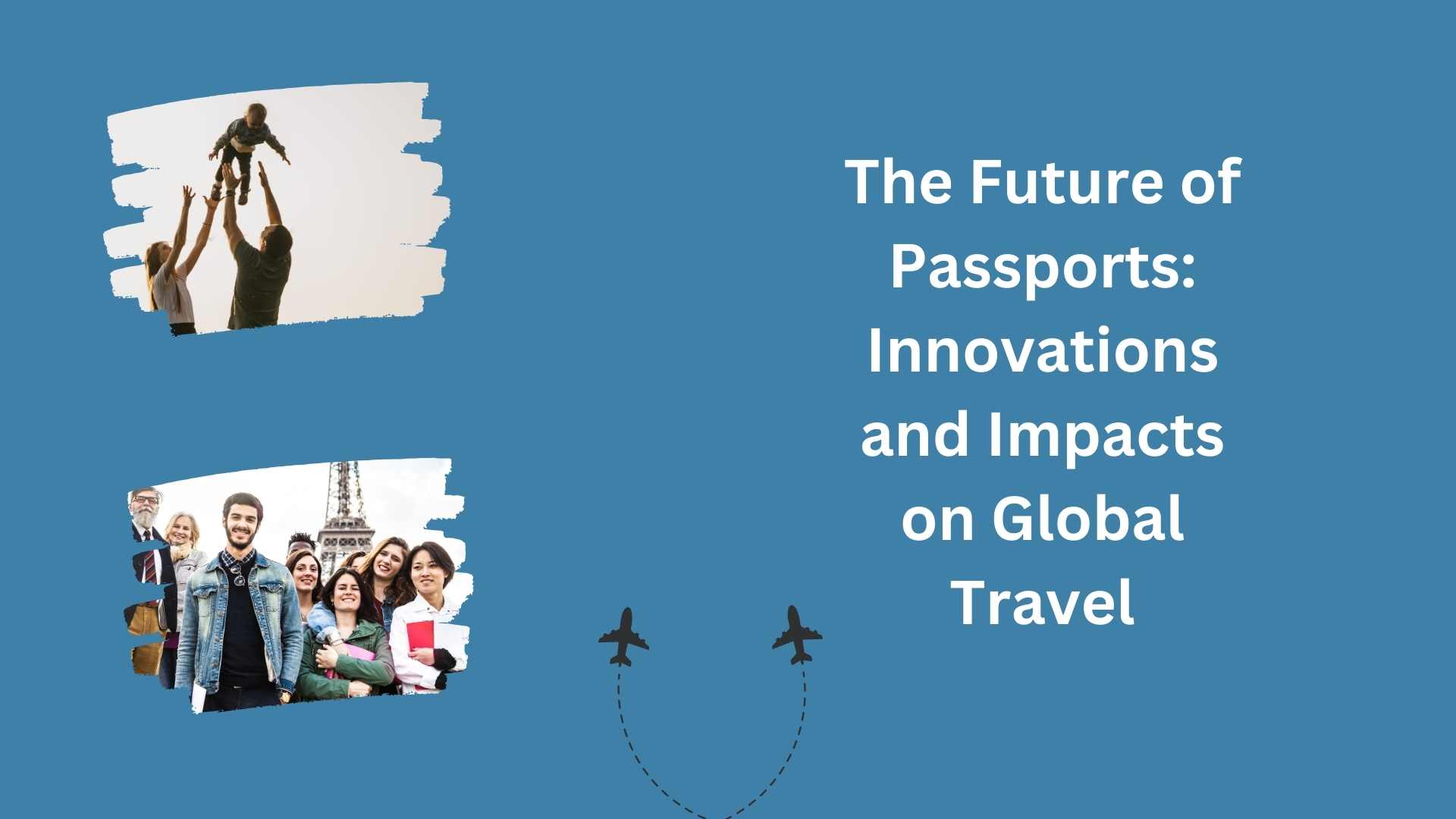Introduction
Apply for online passport typically refers to the process by which an individual submits a request to obtain a passport. A passport is an official document issued by a government, certifying the holder’s identity and citizenship, and enabling them to travel internationally. Passports have long been the cornerstone of international travel, serving as a crucial document that verifies identity and nationality. As the world becomes more interconnected and technology advances rapidly, the future of passports is poised for significant transformation. Innovations in passport technology and their potential impacts on global travel are reshaping how we think about border control, security, and mobility. This article explores the emerging trends and technologies in passport design and their implications for the future of global travel.
Technological Innovations in Passports
1. Biometric Passports
Biometric passports, or e-passports, represent one of the most significant advancements in passport technology. These passports incorporate biometric data, such as fingerprints, facial recognition, and iris scans, to enhance security and prevent fraud. The embedded microchip stores this biometric information, allowing border control authorities to verify the passport holder’s identity more accurately.
Biometric passports offer several advantages:
-
Enhanced Security: By using biometric data, these passports provide a higher level of security compared to traditional passports, reducing the risk of forgery and identity theft.
-
Faster Processing: Automated biometric verification speeds up the immigration process, reducing wait times at border control and enhancing the travel experience.
2. Digital Passports
Digital passports, also known as mobile passports or e-passports, are an emerging technology that allows travelers to store their passport information on a smartphone or other electronic devices. This innovation aims to simplify the travel process by eliminating the need for a physical passport.
Benefits of digital passports include:
-
Convenience: Travelers can access their passport information on their mobile devices, making it easier to manage and present documents during travel.
-
Reduced Risk of Loss: Digital passports minimize the risk of losing physical documents, which can be a significant concern for frequent travelers.
-
Integration with Other Services: Digital passports can be integrated with other travel services, such as boarding passes and hotel bookings, providing a seamless travel experience.
3. Blockchain Technology
Blockchain technology has the potential to revolutionize passport management by providing a secure and transparent way to handle travel documents. Blockchain, a decentralized digital ledger, can store passport data in a tamperproof and verifiable manner.
Key advantages of using blockchain for passports include:
-
Enhanced Security: Blockchain technology offers a high level of security by preventing unauthorized access and tampering with passport data.
-
Decentralized Verification: Blockchain enables decentralized verification of passport information, reducing the reliance on central authorities and potentially speeding up the verification process.
-
Privacy Protection: Travelers have greater control over their data, as blockchain technology allows them to share only the necessary information with authorities.
Impacts on Global Travel
1. Streamlined Border Control
Innovations in passport technology, such as biometric and digital passports, are transforming border control processes. These advancements contribute to more efficient and streamlined border checks, reducing wait times and enhancing the overall travel experience.
-
Automated Border Control: Many airports and border crossings are adopting automated border control systems that use biometric data to verify travelers’ identities. This technology speeds up processing times and allows for a smoother flow of passengers.
-
EGates: Electronic gates use biometric passports to automate immigration checks, further reducing processing times and improving efficiency at border crossings.
2. Increased Security and Fraud Prevention
As passport technology evolves, so does the focus on enhancing security and preventing fraud. The integration of biometric data, digital passports, and blockchain technology contributes to more secure travel documents and reduces the likelihood of identity fraud.
-
Fraud Detection: Biometric features and digital verification methods make it more difficult for individuals to use forged or stolen passports. This enhances overall security and reduces the risk of illegal activities.
-
RealTime Verification: Digital and blockchain-based passports enable real-time verification of passport information, providing immediate confirmation of authenticity and reducing the potential for fraudulent activities.
3. Improved Traveler Experience
The implementation of advanced passport technologies aims to enhance the travel experience for individuals. Innovations such as digital passports and automated border control systems contribute to a more convenient and efficient travel process.
-
Reduced Wait Times: Biometric verification and automated border control systems help reduce wait times at airports and border crossings, making travel more enjoyable and less stressful.
-
Seamless Integration: Digital passports can be integrated with other travel-related services, such as online check-in and airport kiosks, providing a seamless and hassle-free travel experience.
Also Read: How to Apply for a Child Passport
Conclusion
The future of passports is marked by significant technological innovations that promise to enhance global travel. Biometric passports, digital solutions, and blockchain technology are revolutionizing how we manage and verify travel documents, contributing to improved security, efficiency, and convenience. However, these advancements also bring challenges related to privacy, accessibility, and regulatory alignment.
As passport technology continues to evolve, it is essential to address these challenges while embracing the benefits of innovation. The future of global travel will likely be shaped by a combination of advanced technology and international cooperation, creating a more secure, efficient, and connected world for travelers. Understanding and adapting to these changes will be crucial for navigating the complexities of international mobility in the years to come.

